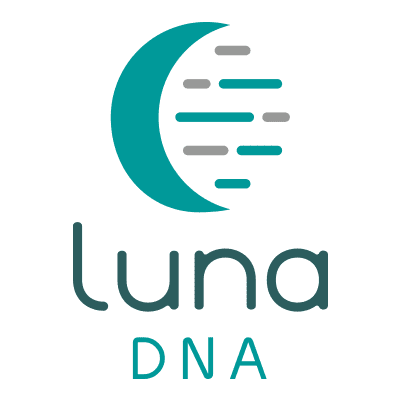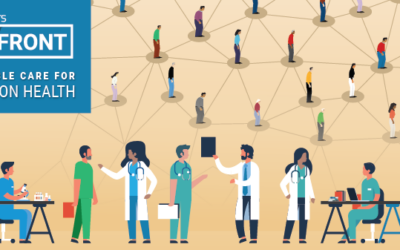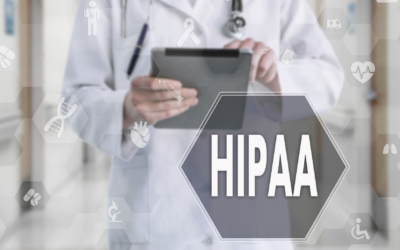Co-Authored by Greenlight Health Data Solutions and Luna
The Information Blocking Rule (IBR), now in effect, is a new federal regulation we should all celebrate as a big win for control over our health information, a right that we should always have had. Let’s take a step back in time and then fast forward to today. In recognition of the importance of digital health information for advancing precision medicine, the Information Blocking Rule was a provision of the 21st Century Cures Act which aimed to modernize healthcare data interoperability and update a component of HIPAA that was oriented to paper-based medical records, not Electronic Health Records (EHRs). Part of the motivation to connectEHRs was to improve the portability of one’s health data to multiple healthcare providers, and to give direct access to one’s health data using online patient portals. The Information Blocking Rule requires that all healthcare organizations give patients access to their full health record digitally (via a patient portal—without delays or cost!
Why is this important? The new Information Blocking Rule unblocks access to Electronic Health Information (EHI) which Health and Human Services (HHS) defines as electronic Protected Health Information (PHI). The significance of this Rule has many threads—not least of which is bringing control and rights to the information much closer to the patient—the individual who the data is about—you! You can now review and research your information to be a more informed patient. You can easily share your data with new healthcare providers, if you relocate or change your insurance coverage. You can avoid time-consuming and costly duplication of diagnostic tests, which is commonplace whenever one engages with a new medical professional. You can also choose to share your data with a clinical research study or trial that is of interest to you, to advance medical knowledge and health discoveries for society more broadly.
We’ve been advocates for an individual’s right to access their health information for a long time. Greenlight Health was an early software platform specifically designed to offer patients online access to their health data. Luna has implemented Greenlight’s EHI data sharing APIs which support connections to over 90% of the U.S. provider market. This approach allows for the inclusion of EHR data, along with genomic and health survey data, for patient-centered research studies to understand and improve health outcomes. Gathering health information from multiple health systems, and across decades, provides a convenience to individuals and their families while simultaneously providing a richness of data to researchers to unlock new insights for health improvements. Such patient-centered studies hold promise to enrich the standard of care more equally for individuals of all ethnic and racial backgrounds.
An essential aspect of inclusive clinical study participation requires that data being shared by individuals is done with their informed consent, and that the data is not used for other purposes outside the individual’s consent. Luna’s health data sharing and analysis platform uses rights-based data privacy protections to protect access to shared data such that a contributor (you) can remove your data from the platform and/or from any studies you joined with a simple click of a button. By implementing rigorous rights-based data protection and privacy that complies with all current privacy laws (such as GDPR in the EU), Luna provides a path to international clinical studies that can benefit from population diversity globally.
It’s no longer in the medical provider’s control to decide when to release a patient’s information. The Information Blocking Rule is really about information sharing and empowering the patient with ownership of their health data. Under HIPAA, healthcare providers are allowed 30 days to fulfill medical record requests; 60 days is permitted if the provider needs an extension. With this new Rule and direct EHI access methods for patients, a healthcare provider cannot “interfere” with the flow of EHI, and it needs to flow without delay. When there are instances of interference, healthcare providers and EHR vendors are subject to financial penalties (up to $1 million per occurance and/or reductions in Medicare and Medicaid reimbursement). Healthcare providers and vendors lobbied strongly against this Rule being passed (in fact, the Rule was held up for six years). Days before the Rule became effective, ten of the leading healthcare industry trade associations were pushing HHS for a delay. As stated, the Rule extends an individual’s right to access EHI through a patient portal. As the name implies, patient portals were designed to support functionality that allows individuals to connect to their medical records whenever needed. The intent of having immediate access to medical records through a patient portal is to provide a mechanism for sharing EHI with other healthcare providers, with family members, and for research.
This Rule is one more step towards providing you with a comprehensive understanding of and access to your own healthcare information and, more importantly, control of how your health records are shared. Taking the power of your health records to the next level, Greenlight Health and Luna combine capabilities to enable you to consolidate your records in one place and safely share your health records and other unique experiences in research studies that are of interest to you. You are in the driver’s seat now. The steps you take next could make a big difference in finding treatments and cures for those who need it most.

About LunaPBC
Founded in 2017, LunaPBC is a public benefit corporation headquartered in San Diego, California. The team, investors, and advisors are renowned in the patient-advocacy, health, and science fields. With participation from over 180 countries and communities advancing causes including disease-specific, public health, environmental, and emerging interests, Luna’s tools and services empower these collectives to gather a wide range of data—health records, lived experience, disease history, genomics, and more—to advance research that addresses their unique health needs. Luna makes research representative of the real world and aligned with people’s true goals by giving all participants a role from right where they are. For more information, visit LunaDNA.com.



